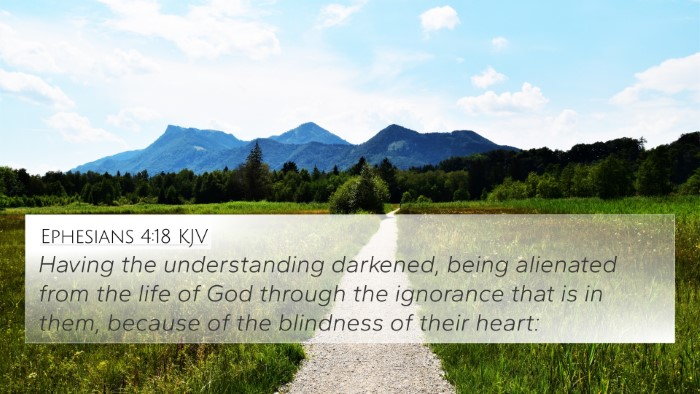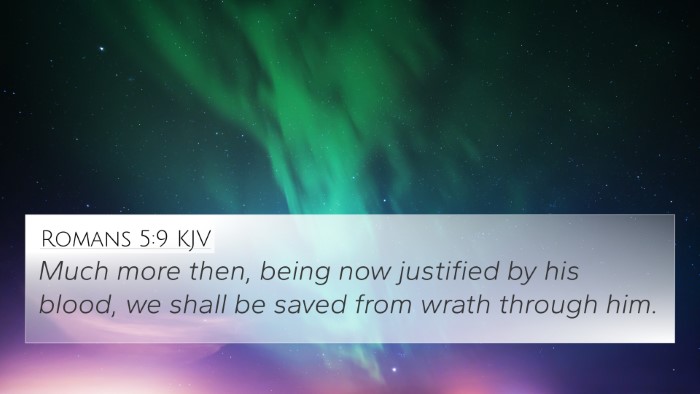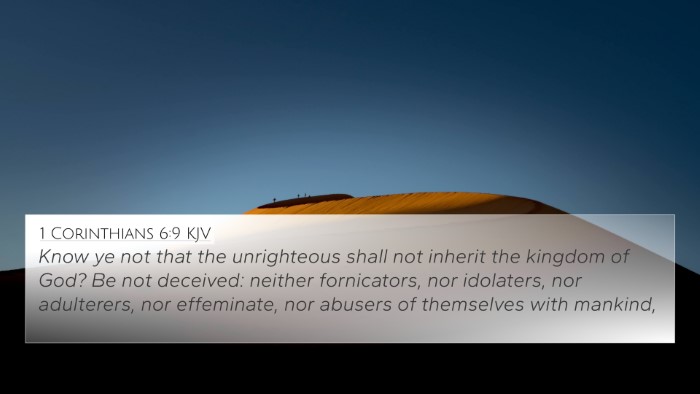Understanding Colossians 1:21
Colossians 1:21 states:
"And you, who once were alienated and enemies in your mind by wicked works, yet now He has reconciled."
Summary of Colossians 1:21
This verse encapsulates significant theological themes such as alienation, reconciliation, and the transformative power of Christ's work. Historically, the Apostle Paul addresses the Colossian church to remind them of their previous state of separation from God due to sin and how, through Christ, they have been restored to relationship with Him.
Commentary Insights
-
Matthew Henry's Commentary:
Henry emphasizes the transition from a state of alienation to reconciliation, highlighting that believers were previously separated from God's grace due to their wicked thoughts and actions. The phrase "enemies in your mind" indicates how internal attitudes influence spiritual standing. Christ’s reconciling work signifies an essential shift for believers, moving them from hostility to harmony with God.
-
Albert Barnes's Notes:
Barnes focuses on the aspect of reconciliation, noting that this was not merely a passive restoration but an active act of Christ. He suggests that the hostility existed in the minds of sinners, creating a barrier between them and God. This reconciliation was made possible by Christ's sacrifice, offering believers the opportunity for forgiveness and renewal of the mind.
-
Adam Clarke's Commentary:
Clarke elaborates on the concept of alienation and remarks that believers were estranged from God, highlighting both the sinful nature of humanity and God's initiative in reconciliation. He points out that despite one's previous condition, divine grace transforms enemies into friends through Christ, which underscores the themes of redemption and hope in the Christian faith.
Bible Verse Cross-References
Colossians 1:21 connects deeply with several other biblical texts. Here are key related verses:
- Ephesians 2:12-13 - Discusses the alienation from the promises of God before coming to Christ.
- Romans 5:10 - Speaks about reconciliation through Christ’s death when we were still enemies.
- 2 Corinthians 5:18-19 - Proclaims the ministry of reconciliation entrusted to believers.
- 1 Peter 2:10 - Illustrates the identity change from not a people to God’s people after experiencing mercy.
- Isaiah 59:2 - Emphasizes how sin separates humanity from God.
- Romans 8:7-8 - Affirms the enmity of the flesh against God and the necessity of spiritual renewal.
- Colossians 1:22 - Continues the promise of reconciliation, showing the depth of Christ’s redemptive work.
Thematic Bible Verse Connections
Consider the interconnectedness of scripture as it relates to Colossians 1:21:
- Links between the Old Testament prophets on alienation due to sin and the New Testament fulfillment in Christ.
- Comparative analysis of Pauline epistles, particularly how themes of reconciliation and transformation are prevalent.
- Exploring cross-references with the Gospels, especially in the context of Jesus's teachings about love and forgiveness.
Cross-Referencing Biblical Texts
Utilizing tools and methods for effective Bible cross-referencing can deepen understanding of scriptures. Here’s how:
- Bible Concordance: Use a concordance to locate terms associated with alienation and reconciliation.
- Bible Cross-Reference Guide: Leverage guides that help identify scripture parallels.
- Cross-Reference Bible Study: Engage in topical studies to see how diverse verses converge on themes of salvation and reconciliation.
Conclusion
The richness of Colossians 1:21 advocates for a deeper engagement with the themes of sin, alienation, and reconciliation through Christ. By exploring cross-references and understanding related verses, believers can grasp the full scope of what it means to be reconciled with God.













